| |
News Zealand proposes a voluntary news censor without feeling the need to deny fair justice to organisations that don't opt in
|
|
|
 | 27th March 2013
|
|
| See article from
listener.co.nz
See Law Commission report from
r128.publications.lawcom.govt.nz
|
 New Zealand Law Commission has published a report about news censorship titled: The New Media Meets New Media: Rights, Responsibilities and Regulation in the Digital Age.
New Zealand Law Commission has published a report about news censorship titled: The New Media Meets New Media: Rights, Responsibilities and Regulation in the Digital Age. The most important recommendation in the report is for the
existing news media regulatory bodies to be replaced with an umbrella body to be known as the News Media Standards Authority , described in a media briefing as a one-stop-shop for adjudicating complaints across all news media, irrespective of the
format or delivery channel. The New Zealand Press Council, the Broadcasting Standards Authority and the Online Media Standards Authority would be replaced with a single independent standards body with jurisdiction over all news media broadcasters,
newspapers, and online providers. It would be a non-state body, with membership voluntary and available to all including bloggers, but privileges accorded to media, including many by law, would only be available to those who signed up. This
body would not be established by statute but it would be indirectly recognised in statutory provisions that create the various news media privileges. It should have a separate legal existence independent of the industry. It should preferably be an
incorporated society.
|
| |
Egyptian court reverses banning of TV channels on the NileSat satellite
|
|
|
 | 24th March
2013
|
|
| See article from
allafrica.com
|
 Egypt's Administrative Court has issued an order to withdraw the censorship on satellite channels by the Media Ministry, the Television and Radio Union and the NileSat Egyptian Satellite Company.
Egypt's Administrative Court has issued an order to withdraw the censorship on satellite channels by the Media Ministry, the Television and Radio Union and the NileSat Egyptian Satellite Company. The court explained that censorship is not
within the jurisdiction of the Media Minister or others, and that this jurisdiction belongs only to the General Authority for Investment. The NileSat Company had halted the broadcast of some satellite television channels according to
reports from the Media Ministry claiming its content should be banned.
|
| |
Report: Dozens detained, jailed in crackdown on Vietnam bloggers
|
|
|
 | 19th
March 2013
|
|
| See article from
latimes.com
|
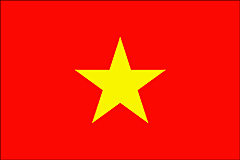 But as Internet access has exploded in Vietnam, so has a government crackdown on Internet users, activists say. A new report from the International Federation for Human Rights and the Vietnam Committee on Human Rights tallied more than 30 people
imprisoned or awaiting trial for peacefully using the Internet, many jailed for years for blogging about corruption and other touchy topics. A dozen more bloggers are under house arrest.
But as Internet access has exploded in Vietnam, so has a government crackdown on Internet users, activists say. A new report from the International Federation for Human Rights and the Vietnam Committee on Human Rights tallied more than 30 people
imprisoned or awaiting trial for peacefully using the Internet, many jailed for years for blogging about corruption and other touchy topics. A dozen more bloggers are under house arrest. ...Read the full
article
|
| |
Australian government proposes censor who would control the press by being able to revoke legal protections for newspapers
|
|
|
 | 13th March 2013
|
|
| See article from
au.news.yahoo.com
|
 Newspapers could have critical protections from privacy laws ripped away by a Government-appointed official under new media laws mooted by the Federal Government. The proposed changes met with widespread criticism.
Newspapers could have critical protections from privacy laws ripped away by a Government-appointed official under new media laws mooted by the Federal Government. The proposed changes met with widespread criticism. Communications Minister Stephen
Conroy unveiled his long-awaited package of media reforms, demanding the creation of a public interest test for major media mergers and the appointment of a bureaucrat to certify independent press regulatory bodies. Conroy gave little information on how
the public interest test would work and said the measures must pass Parliament inside two weeks or be junked. Shadow communications minister Malcolm Turnbull vowed that the Opposition would oppose the public interest test and the creation of the
regulator: Any attempt to regulate or further circumscribe the media has got to be viewed with the greatest of suspicion. Particularly from a Government that seems determined to cowl the media, to bully the media into
not criticising it.
Under Senator Conroy's plan, an office called the Public Interest Media Advocate would be created that would apply the public interest test to mergers and give the tick to independent regulators such as the
Australian Press Council or the Independent Media Council. The Media Advocate would have the power to revoke certification for either body should it judge it was not living up to its promised standards. Without certification, newspapers would lose
protection from privacy laws and their ability to publish controversial and legally risky stories would be compromised.
|
| |
Ethiopia bans opposition newspaper
|
|
|
 | 12th March 2013
|
|
| See article from
en.rsf.org
|
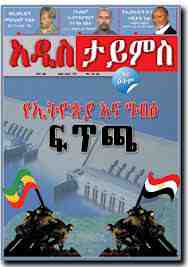 Reporters Without Borders strongly condemns a decision by the Ethiopian Broadcasting Authority (EBA), which regulates all the media, to withdraw the publication licence of the Addis Times, an opposition bimonthly magazine created after the authorities
closed the outspoken weekly Fitih last August.
Reporters Without Borders strongly condemns a decision by the Ethiopian Broadcasting Authority (EBA), which regulates all the media, to withdraw the publication licence of the Addis Times, an opposition bimonthly magazine created after the authorities
closed the outspoken weekly Fitih last August. The way the authorities are persecuting the Addis Times and its employees is indicative of the strength of the Ethiopian government's determination to restrict media freedom and silence its
critics, Reporters Without Borders said. The grounds given by the EBA are not of the kind that justify such a severe measure as closure under Ethiopian law. This sanction must be lifted at once. We call on the authorities to put a stop to
this harassment of the Addis Times and its journalists. In a 10 January letter, the EBA accused the Addis Times of failing to report a change of owner and change of address, failing to send the two obligatory copies of each issue to the
National Archives, and a lack of transparency in its funding. No evidence was provided to support these claims or the punishment imposed.
|
| |
|
|
|
 | 10th March 2013
|
|
| See article from
en.rsf.org
|
 Reporters Without Borders deplores the Eritrean government's censorship of the Qatari TV news network Al Jazeera since 1 February:
Reporters Without Borders deplores the Eritrean government's censorship of the Qatari TV news network Al Jazeera since 1 February: In a country with no privately-owned media and where national news broadcast in the
local language is strictly controlled by the government, the foreign media are only 'tolerated' and it is clear that the line that cannot be crossed is coverage of Eritrean news.
According to the Qatar-based newspaper Al-Sharq, the
Eritrean authorities were annoyed with Al Jazeera for carrying reports about demonstrations by Eritrean exiles outside Eritrean diplomatic missions in Cairo, London, Frankfurt, Rome, Stockholm and other capitals in opposition to the government and in
support of the soldiers who stormed the information ministry in Asmara during a brief mutiny on 21 January. The information ministry issued a decree on 1 February forbidding anyone in Eritrea to provide access to Al Jazeera. Public places such as
restaurants, cafe's and hotels were specifically targeted. To ensure compliance, Al Jazeera's English-language channels were jammed.
|
| |
Vietnamese blogger falsely jailed in a psychiatric institution after reporting about corruption
|
|
|
 | 8th March 2013
|
|
| See article from
cpj.org
|
 In a widening crackdown on online expression, Vietnamese security officials have arrested critical independent blogger Le Anh Hung and are holding him against his will in a psychiatric institution, news reports said. The Committee to Protect Journalists
condemns the arrest and calls on authorities to immediately release Hung and all other journalists detained on spurious charges in Vietnam.
In a widening crackdown on online expression, Vietnamese security officials have arrested critical independent blogger Le Anh Hung and are holding him against his will in a psychiatric institution, news reports said. The Committee to Protect Journalists
condemns the arrest and calls on authorities to immediately release Hung and all other journalists detained on spurious charges in Vietnam. Six security agents arrested Hung on January 24 in the northern city of Hung Yen, saying they needed to
question him in connection to matters related to his temporary residence papers, according to a Radio Free Asia report. The police took Hung to Social Support Center No. 2, a mental health institution in Hanoi, the report said. The institution's
director later told Hung's colleagues that he had been admitted at the request of his mother and was not allowed to see visitors, the report said. The Observatory for the Protection of Human Rights Defenders, a coalition of three international
rights groups, said in a public statement that Hung's mother had made no such request. The statement also said that before his arrest, Hung had been subjected to repeated interrogations, threats, and harassment by police. The RFA report said Hung has
faced prior harassment for his online writings, which include critical blog entries on high-level corruption and abuse of power inside the ruling Communist Party. Hung's arrest and detention underscore how sensitive officials have become to
online criticism, said Shawn Crispin, CPJ's senior Southeast Asia representative: Instead of crushing online dissent, Vietnam's government would be wise to listen to the growing dissatisfaction with its rule that is being expressed on independent
blogs.
|
| |
Burma hasn't given up on repression of the press yet
|
|
|
 | 2nd March 2013
|
|
| See article from
cpj.org
|
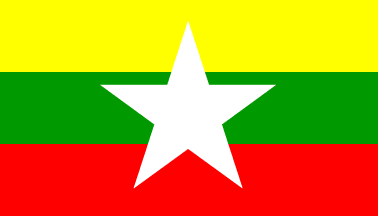 Draft legislation designed to control the media in Burma threatens to reverse fragile press freedom gains recently achieved under President Thein Sein's democratic reform program, the Committee to Protect Journalists has said.
Draft legislation designed to control the media in Burma threatens to reverse fragile press freedom gains recently achieved under President Thein Sein's democratic reform program, the Committee to Protect Journalists has said. The draft Press Law
Bill (2013) bans reporting on several vague topics, including any news or commentary critical of the military-drafted 2008 constitution, and allows for six-month prison sentences for failing to register news publications with the government, according to
a copy of the legislation published on Wednesday in the daily government-owned newspaper New Light of Myanmar. The law's proposed guidelines prohibit the publication of any news that could disturb the rule of law, incite unrest, or violate the constitution and other existing laws.
The draft law also calls for the appointment of a new registration official, who will be charged with issuing publishing licenses and monitoring the media for violations of new censorship guidelines. If passed in its current form,
the draft law will essentially replace Burma's old censorship regime with a similarly repressive new one, said Shawn Crispin, CPJ's senior Southeast Asia representative: Banning news topics and legalizing the jailing of journalists is utterly
inconsistent with the press freedom guarantees that authorities vowed the new law would promote. We urge lawmakers to amend this draft in a way that protects, and not restricts, press freedom. The draft bill will soon be deliberated by the
country's military-influenced parliament. It was drawn up by the Ministry of Information without input from independent press groups, according to news reports.
|
| |
Blogger murdered for his role in organising anti-islamist protests in Bangladesh
|
|
|
 | 23rd February 2013
|
|
| 17th February 2013. See article from
english.ahram.org.eg
|
 A Bangladesh blogger has been murdered after he played a large role in organizing big anti-Islamist protests in Dhaka.
A Bangladesh blogger has been murdered after he played a large role in organizing big anti-Islamist protests in Dhaka. Protests championed by the country's bloggers have seen thousands of people take to the streets demanding the execution of
leaders of the Jamaat-e-Islami party who are under trial for war crimes. Police found the body of Ahmed Rajib, better known by his online identity Thaba Baba, near his home in Dhaka, with his head hacked apart with a machete. Police official
Sheikh Motiur Rahman told AFP: We recovered the machete. It is clear the attacker wanted to murder him. They did not touch his laptop or other valuable objects,
Rajib's brother told AFP his sibling
had been threatened frequently by Islamists angry at his role in the protests and his writings against the religion. The killing was the second fatal attack in Dhaka against a blogger critical of Islamist groups in less than a month, after
the stabbing death of a self-styled online militant atheist by three unidentified men near his office. Update: 4 people die in continuing protests 23rd February 2013. See
article from bbc.co.uk At least four people have died in Bangladesh in clashes
between police and extremist mulsim protesters who took to the streets accusing bloggers of blasphemy. Dozens more were reported injured. Some were calling for the death of the bloggers, whom they accuse of insulting Islam. In the capital,
Dhaka, thousands of protesters from an alliance of Islamic parties went on a protest rally soon after Friday prayers in the country's national mosque. Police fired rubber bullets and tear gas to disperse protesters who threw stones and vandalised
buildings, the BBC's Anbarasan Ethirajan reports from Dhaka. Similar violent clashes were reported across the country. In some places, there were clashes between supporters of the ruling Awami League and Islamist activists, our correspondent
reports. Islamist parties have called for a nationwide general strike on Sunday in protest at the killing of their supporters in recent clashes. Update: Murderous Religious Violence 3rd March 2013.
See article from dawn.com Bangladesh
police have arrested five students of from NorthSouthUniversity on charges of murdering an anti-Islamist blogger. The students allegedly confessed to hacking to death Ahmed Rajib Haider on February 15 after he helped organise protests against
leaders of the Jamaat-e-Islami party on trial for war crimes, police said. They targeted him because of his supposedly blasphemous writings against Islam and Mohammed, Dhaka police deputy commissioner Masudur Rahman told AFP. Saturday's arrests came as Bangladesh police opened fire on islamic extremists protesting the conviction for war crimes of one of their leaders, killing three people outside the port city of Chittagong. The deaths brought the total number killed since a war crimes tribunal delivered its first verdict on January 21 to at least 56, according to police figures.
|
| |
Director of TV station sentenced for jail after broadcast featured criticism of the president
|
|
|
 | 22nd
February 2013
|
|
| See article from
cpj.org
|
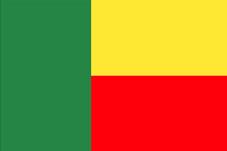 An appellate court in Benin should overturn the conviction and toss out a prison sentence handed to the director of a private television station last week in connection with a broadcast of a press conference in September in which a former presidential
adviser criticized President Boni Yayi, the Committee to Protect Journalists said.
An appellate court in Benin should overturn the conviction and toss out a prison sentence handed to the director of a private television station last week in connection with a broadcast of a press conference in September in which a former presidential
adviser criticized President Boni Yayi, the Committee to Protect Journalists said. On January 16, a judge in Cotonou, the commercial capital, sentenced Berthe Cakpossa, director of Canal 3 TV, to three months in prison, a fine of 500,000 francs
CFA (US$1,000), and symbolic damages of 1 franc CFA, according to news reports. Cakpossa was charged with offending the head of state, news reports said. Her defense lawyer, Claret Dedie, told CPJ the journalist was appealing the decision. Dedie
also said that prison terms of less than six months do not require immediate incarceration in Benin, and that the appeal had suspended the execution of the sentence. President Yayi retaliated against a journalist who conveyed a message he did
not like and then pressured the courts to impose his will. He is sending a message that his government is off-limits to critical scrutiny, said CPJ Africa Advocacy Coordinator Mohamed Keita from New York. We call on the appeals court to overturn
this verdict, which is a stain on Benin's image as a free, democratic nation.
|
| |
|
|
|
 | 21st February
2013
|
|
|
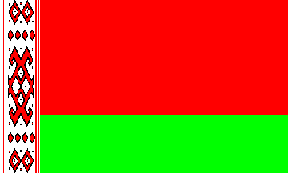 Europe's last dictatorship uses violence, repressive legislation and economic discrimination to silence independent journalists. Yanina Melnikava reports.
Europe's last dictatorship uses violence, repressive legislation and economic discrimination to silence independent journalists. Yanina Melnikava reports. See
article from indexoncensorship.org |
| |
Committee to Protect Journalists reports on rising attacks on the press
|
|
|
 | 14th February
2013
|
|
| See article from cpj.org
See report from as.wiley.com
|
 From Aleppo to Zacatecas, Beijing to Brasilia, the past decade has seen a sharp rise in the number of journalist imprisonments, assassinations, and disappearances worldwide. Caught between warlords and religious extremists, corrupt police and drug
cartels, and hemmed in by increasingly oppressive censorship laws, journalists have never been at such peril, nor asked to pay such a high price for the ethical practice of their profession.
From Aleppo to Zacatecas, Beijing to Brasilia, the past decade has seen a sharp rise in the number of journalist imprisonments, assassinations, and disappearances worldwide. Caught between warlords and religious extremists, corrupt police and drug
cartels, and hemmed in by increasingly oppressive censorship laws, journalists have never been at such peril, nor asked to pay such a high price for the ethical practice of their profession. Begun as a simple typewritten list in 1986, Attacks on
the Press has grown to become the definitive annual assessment of press freedoms globally. Compiled by the Committee to Protect Journalists, it provides up-to-the-minute analyses of media conditions, press freedom violations, and emerging threats to
journalists in every corner of the world. In this 2013 edition, you will find front-line reports and analytical essays by CPJ experts covering an array of topics of critical importance to journalists, including:Journalist casualties at the front
lines of conflicts in Syria, Nigeria, Somalia,Afghanistan, and other global hot spotsThe curtailment of Internet freedoms across Southeast Asia, with an emphasis on thedraconian measures now in place in Vietnam, Malaysia, and ThailandThe status of
investigations into the disappearances of 35 journalists worldwide, and why more than half of those disappeared went missing in Mexico and RussiaThe rise in journalist imprisonments globally, the spate of new anti-terrorism laws that made it possible,
and the example set by the U.S. government in the wake of 9/11The state of journalistic freedoms in Iran since the Green Movement and the practice of summary imprisonment of Iranian journalists How the rise of mobile Internet technology and social media
has engendered new dangers for journalists from both insurgent groups and the governments they are fighting
|
| |
Attempted murder of atheist blogger
|
|
|
 | 5th February 2013
|
|
| See article from
richarddawkins.net
|
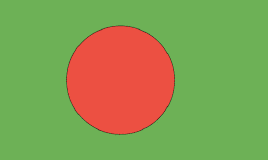 A self-styled militant atheist who is famed for his anti-religious blogs was fighting for life on after he was stabbed in the capital of Bangladesh.
A self-styled militant atheist who is famed for his anti-religious blogs was fighting for life on after he was stabbed in the capital of Bangladesh. Asif Mohiuddin, 29, was attacked on Monday night by three unidentified men near his office
in Dhaka's upscale Uttara district. The nature of the cuts proved that the attackers wanted to murder him, hospital surgeon Haridas Saha said, adding that friends of Mohiuddin who were with him at the time of the attack blamed Islamic fundamentalists
.
|
| |
|
|
|
 | 1st February 2013
|
|
| A recently released report from a European Union group contains recommendations that would endanger media freedom, says Kirsty Hughes of Index on Censorship See
article from indexoncensorship.org |
| |
Burma official dissolves its press censorship board
|
|
|
 | 26th January 2013
|
|
| From bangkokpost.com
|
 Myanmar's notorious press censorship board was officially dissolved on Thursday in another nod towards press freedom since the government began to make democratic reforms two years ago.
Myanmar's notorious press censorship board was officially dissolved on Thursday in another nod towards press freedom since the government began to make democratic reforms two years ago. The Press Scrutiny and Registration Division (PSRD) had not
been in operation since August last year, when Myanmar announced it would lift its policy of prior censorship of all publications, which had been in place in the country since 1964. The state-run New Light of Myanmar reported:
The division under the Printing and Publishing Enterprise has stopped functioning since 20 August, 2012, to pave ways for freedom of press. Copyrights and Registration Division will be formed under Information and Public Relations
Departmentr.
|
| |
Reprehensible EU report calls for each nation to appoint press censors that have the power to ban journalists
|
|
|
 |
23rd January 2013
|
|
| See article from telegraph.co.uk
|
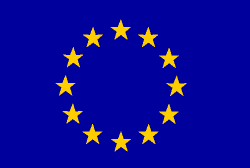 A high level EU panel, that includes Latvia's former president and a former German justice minister, was ordered by Neelie Kroes, European Commission vice-president, last year to report on media freedom and pluralism . It has concluded that
it is time to introduce new rules to censor the press. The report concluded:
A high level EU panel, that includes Latvia's former president and a former German justice minister, was ordered by Neelie Kroes, European Commission vice-president, last year to report on media freedom and pluralism . It has concluded that
it is time to introduce new rules to censor the press. The report concluded: All EU countries should have independent media councils, Media councils should have real enforcement powers, such as
the imposition of fines, orders for printed or broadcast apologies, or removal of journalistic status. The national media councils should follow a set of European-wide standards and be monitored by the Commission to ensure that
they comply with European values.
As well as setting up state regulators with draconian powers, the panel also recommended that the European Commission be placed in overall control in order to ensure that the new press censors do not
breach EU laws. Douglas Carswell, the Conservative MP for Clacton, attacked the report for making: An extraordinary, and deeply disturbing proposal. Having EU officials overseeing our
free press - and monitoring newspapers to ensure they comply with European values - would be quite simply intolerable. This is the sort of mind-set that I would expect to find in Iran, not the West.
|
| |
Vietnam jails 14 pro-democracy activists
|
|
|
 | 20th January 2013
|
|
| See article from
guardian.co.uk
|
 A Vietnamese court has been criticised by the US after it found 14 pro-democracy activists guilty of subversion and sentenced them to jail terms ranging from three to 13 years.
A Vietnamese court has been criticised by the US after it found 14 pro-democracy activists guilty of subversion and sentenced them to jail terms ranging from three to 13 years. The long prison terms suggest the country's Communist government is
intent on stepping up its crackdown on dissenters to its authoritarian, one-party rule -- particularly online. The defendants are linked to Viet Tan, a Vietnamese dissident group based in the US. Vietnam has labelled it a terrorist group, but the
US government says it has seen no evidence it advocates violence. The US embassy said Wednesday's verdicts were: part of a disturbing human rights trend in Vietnam. We call on the
government to release these individuals and all other prisoners of conscience immediately, it said in a statement.
|
| |
Online journalist sentenced to 2 years in jail for supposedly insulting Kuwait's ruling family
|
|
|
 | 19th January 2013
|
|
| See article from
cpj.org
|
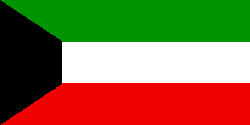 A Kuwaiti court has sentenced an online journalist to prison for supposedly insulting the ruling family on social media, according to news reports. Ayyad al-Harbi was ordered to begin serving the two-year jail sentence immediately, news reports said.
A Kuwaiti court has sentenced an online journalist to prison for supposedly insulting the ruling family on social media, according to news reports. Ayyad al-Harbi was ordered to begin serving the two-year jail sentence immediately, news reports said.
Police arrested al-Harbi on November 13 in connection with a series of posts he made to his personal Twitter account, starting in October, in which he criticized the government and called on authorities to stop oppressing Kuwaiti citizens, according
to news reports. Al-Harbi's lawyer, Mohammed al-Humidi, said the journalist would be appealing, according to news reports. Al-Harbi wrote opinion pieces for Sabr, a Kuwait-based independent website that publishes news and commentary. He
wrote extensively about local issues including corruption and freedom of speech in the run-up to the December parliament election. He has also written articles that have called on the Shia minority to revolt against corruption and criticized the
government in connection with their attitudes on freedom of speech and women's rights. Al-Harbi wrote a post on Twitter on January 6, accusing the government of corruption. The same day, he posted a prediction on Twitter, in which he said he would
be indicted in the coming days for insulting the Alsabah ruling family, the same fate met by Kuwaiti opposition activist Rashed al-Anzi, who had been convicted on the same charge the day before. CPJ is alarmed by the prison sentence handed to
Kuwaiti journalist Ayyad al-Harbi, said Middle East and North Africa Coordinator Sherif Mansour. We urge the Kuwaiti appellate court to reverse this conviction and uphold the nation's commitment to freedom of expression.
|
| |
|
|
|
 | 15th January 2013
|
|
| See article from
guardian.co.uk
|
 Venezuelan intelligence has raided the home of a Twitter user suspected of spreading destabilising rumours about the health of Hugo Chavez ahead of an inauguration that the ailing president looks increasingly unlikely to attend.
Venezuelan intelligence has raided the home of a Twitter user suspected of spreading destabilising rumours about the health of Hugo Chavez ahead of an inauguration that the ailing president looks increasingly unlikely to attend. The alleged
microblogger, Federico Medina Ravell is the cousin of a prominent opposition figure, prompting concerns that a long-simmering information war could be escalating as the government and its opponents try to fill the vacuum left by a leader who has
not been seen or heard in public since he flew to Cuba for emergency cancer surgery a month ago. The team from Sebin (Bolivarian National Intelligence Service) confiscated several computers from Medina's home in Valencia. Medina is the
cousin of Alberto Federico Ravell, a well-known opposition journalist and co-founder of Globovision, a major news broadcaster and staunch critic of the Chavez government. Medina, who was not at home, is accused of instigating terrorism through
social networking sites. He is said to be behind the @LucioQuincioC Twitter account, which has claimed that Chavez will not return from Havana.
|
| |
|
|
|

| 13th January 2013
|
|
| See article
from foxnews.com
|
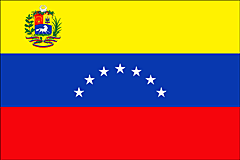 Rights groups are condemning an order by Venezuela's broadcast agency for a television channel to stop showing clips that question the legality of postponing President Hugo Chavez's inauguration.
Rights groups are condemning an order by Venezuela's broadcast agency for a television channel to stop showing clips that question the legality of postponing President Hugo Chavez's inauguration. The organizations Human Rights Watch and Reporters
Without Borders are criticizing the government's actions against the country's only staunchly anti-Chavez channel, Globovision. U.S.-based Human Rights Watch said on Saturday that the Venezuelan government is attempting to censor critical
discussions and intimidate its critics.
|
| |
Chinese newspaper staff write open letters protesting against an editorial being censored
|
|
|
 | 10th January 2013
|
|
| 5th January 2012. See article from
bbc.co.uk |
 Journalists at a leading Chinese newspaper have called for a chief newspaper censor to resign, in a rare protest against censorship.
Journalists at a leading Chinese newspaper have called for a chief newspaper censor to resign, in a rare protest against censorship. Prominent former staff and interns at the Southern Weekly urged the official to quit after he changed an editorial
into a Communist Party tribute. They accused him of being dictatorial in an era of growing openness . The row at the Southern Weekly - known for hard-hitting investigations and testing the limits of censorship - erupted after a new
year editorial calling for guaranteed constitutional rights was changed at the last minute to one extolling the virtues of the Communist Party. In two open letters, 35 prominent former staff and 50 interns at the paper have demanded the
resignation of the provincial propaganda chief in Guangdong, Tuo Zhen. BBCChinese.com editor Zhuang Chen says it is thought to be the first time there has been a direct showdown between newspaper staff and party officials. The row comes as
the website of another liberal journal was closed after it ran an essay urging political reform. The influential online magazine, Yanhuang Chunqiu (or China Through the Ages), had called on China's leaders to guarantee constitutional rights such as
freedom of speech and assembly. Update: Street Protest 8th January 2013. See article
from guardian.co.uk Hundreds of protesters gathered in front of the headquarters of a southern newspaper on Monday in a rare display of public anger over China's
draconian censorship regulations. Many held signs calling for greater press freedom and expressing support for the newspaper's editorial employees, some of whom have gone on strike against the provincial propaganda authority's interference with a recent
editorial. Widely circulated pictures on microblogs show large groups of young people holding up handwritten anti-censorship messages and grappling with police. This incident could mark the first time in more than two decades that the
editorial staff of a major newspaper have openly staged a strike against government censorship, reported the Hong Kong-based South China Morning Post. Update: Truce 10th January 2013. See
article from bbc.co.uk Reports from China suggest journalists at a
newspaper embroiled in a censorship row are returning to work after an agreement was reached. Staff at Southern Weekly had demanded that a top censor and propaganda chief step down after a New Year message was changed. On Tuesday, editorial
propaganda from the state-run Global Times blamed the incident on activists outside the media industry was republished on multiple news sites - the result, according to reports, of a government directive. But several major news portals carried a
disclaimer saying they did not endorse the piece and a number of newspapers did not run it, in an apparent show of solidarity. Reports citing sources both from the paper's staff and people close them said a deal to end the dispute was agreed on
Tuesday evening. Thursday's edition would be published as normal and most staff would not be punished, Reuters reported. However, online reports citing microblogs suggest the row may have widened to include a well-known daily, Beijing News.
Unconfirmed reports said its chief editor, Dai Zigeng, had resigned over pressure to publish the Global Times editorial. Update: Jailed 27th November 2015. See
article from voanews.com China has sentenced three human rights activists to harsh prison
terms for participating in an anti-censorship protest in 2013. The attorney for the three, Zhang Lei, told VOA that he is shocked and angered by the verdict, which gave a sentence of six years to activist Guo Feixiong. Activists Liu
Yuandong and Sun Desheng were sentenced to three years and 2½ years, respectively, for participating in the same demonstration. The three were charged with gathering crowds to disturb social order and Guo received the additional charge of
picking quarrels and provoking trouble. Both charges are often used broadly against dissidents. The protest they took part in was a weeklong peaceful demonstration in 2013 outside the headquarters of the Southern Weekly newspaper. The
demonstrators called on Beijing to give up censorship practices that affected the paper. Zhang said he will be filing appeals for all three of his clients.
|
| |
Sudan police seize Al Karar daily newspaper
|
|
|
 | 10th January 2013
|
|
| See article from
radiodabanga.org
|
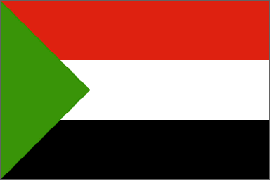 The National Security of Sudan has confiscated the printed edition of Al Karar daily newspaper of Thursday 27 December. The agents entered the printing press without any warning and took the printed materials. The Khartoum government has closed down
several independent newspapers and often confiscates the printed edition as part of general censorship.
The National Security of Sudan has confiscated the printed edition of Al Karar daily newspaper of Thursday 27 December. The agents entered the printing press without any warning and took the printed materials. The Khartoum government has closed down
several independent newspapers and often confiscates the printed edition as part of general censorship. Al Karar newspaper started six months ago and is jointly owned by the editors. The Sudan Journalist Association, the unofficial representative
of independent journalists in Sudan, has condemned the confiscation. The confiscation is not based on any warrant, constitutional regulation or other law. This will damage the economic security of the newspaper. If the government wants to block
information it should use the law , the spokesman told Radio Dabanga.
|
| |
Blogger tried as if he were journalist for apostasy
|
|
|
 | 9th January 2013
|
|
| See article from
yementimes.com
|
 A judge surprised a courtroom full of people when he postponed the trial of a Yemeni blogger being tried as journalist for apostasy.
A judge surprised a courtroom full of people when he postponed the trial of a Yemeni blogger being tried as journalist for apostasy. Ali Qasim Al-Saeedi, who was arrested in November under charges of denouncing Islam was supposed to receive a
verdict on Tuesday. But, in front of a full house of journalists, human rights activists, relatives and neighbors, the judge overseeing his case mysteriously postponed a declaration of the verdict until January 7, 2013. Al-Saeddi's case has
generated a lot of attention as it touches on issues of the freedom of expression and faith and who should be considered a journalist. The accused's family has professed many times that he is a blogger and not a journalist, and thus they say he should
not fall under the jurisdiction of the Printing and Press Court. The one-time general manager of the Budget and Planning department in the Supreme Judicial Council, Al-Saeddi finds himself in trouble because of academic writings and
interpretations of the Koran he posted on his personal facebook page.
|
| |
Moldova passes a law banning news censorship
|
|
|
 | 6th January 2013
|
|
| See article from
setimes.com
|
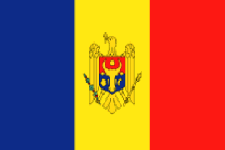 A new law in Moldova introduces punitive measures against media censorship and deliberate obstruction of mass-media activity.
A new law in Moldova introduces punitive measures against media censorship and deliberate obstruction of mass-media activity. The bill also makes a specific reference to a ban of public media censorship, involving forced distortion of a media
product, limitation to spreading information of public interest, and other illegal actions meant to restrict information dissemination. The draft is intended to complement the law on freedom of expression, which came into effect in 2010 and bans
censorship but does not define any punitive measures. According to the new regulations, which were given the green light last month and approved by the government, censorship fines up to 1,250 euros, and up to 600 euros for obstruction of media
activity, will be imposed. At the same time, those who hold public offices and break this law could lose the right to hold public positions for up to four years.
|
| |
Index on Censorship publishes report detailing harsh response to internet dissent
|
|
|
 |
5th January 2013
|
|
| See news release from
indexoncensorship.org
See article [pdf]
from indexoncensorship.org
|
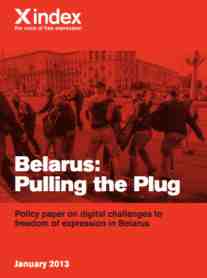 A report released on Friday by Index on Censorship details the harsh response of the authoritarian government in Belarus after it
realised its policy of promoting internet expansion had provided a platform for online dissent in Europe's last dictatorship.
Belarus: Pulling the Plug identifies the ways President Lukashenko is now scrambling to restrict online freedom of expression in a country that has one of the worst human rights record in the world.
A report released on Friday by Index on Censorship details the harsh response of the authoritarian government in Belarus after it
realised its policy of promoting internet expansion had provided a platform for online dissent in Europe's last dictatorship.
Belarus: Pulling the Plug identifies the ways President Lukashenko is now scrambling to restrict online freedom of expression in a country that has one of the worst human rights record in the world. Andrei Aliaksandrau, Index's Belarus
programme manager, said: Alexander Lukashenko has significantly expanded his government's control over the internet in the last two years. Few people in Belarus realise the level of state surveillance now being carried
out by Lukashenko's security services. This poses a huge threat to internet activists in Belarus. The threat of a three year prison sentence for libel against online journalist Andrzej Poczobut shows this threat is real.
The regime is
using sophisticated digital methods to curtail free speech made possible by new technologies including:
- Web filters: Index on Censorship tested the WiFi at locations across Belarus including the Institute of Journalism of the Belarus State University in Minsk which filtered five of the major independent websites
- Surveillance techniques which
allow the state to intercept all online traffic
- The removal of secure access to particular websites including Facebook to potentially compromise users' logins during election periods
- The creation of fake versions of independent websites
(zapraudu.info, nn.by, charter97.org) to create 'clone sites' with out of date news -- and DNS re-routing.
The threat to online freedom also comes from long-established methods the regime uses to chill free speech including: the restrictive media law of 2008, criminal libel laws and using unrelated laws such as 'petty hooliganism' to silence opinion with
impunity. The paper reports that the government of Belarus is one of the first to use distributed denial of service attacks (DDoS) to collapse the servers of opposition websites such as charter97.org. Mike Harris, Head of Advocacy at Index
on Censorship said: State surveillance is yet another way that Lukashenko is compromising freedom of expression in Belarus. Index calls on the government to end online surveillance, release political prisoners and
support its citizens' rights to free expression. The European Union must also act to stop the export of surveillance technology to places like Belarus.
The report recommends that the European Commission supports the parliamentary
motion tabled by Marietje Schaake MEP calling for a bar on the export of surveillance equipment to authoritarian states.
|
| |
Kadyrov's Way newspaper shut down seemingly after its name caused a snicker at a Putin press conference
|
|
|
 | 5th January 2013
|
|
| See article from
deccanherald.com
|
 Chechen authorities have shut down a local newspaper after its editor-in-chief asked Russian President Vladimir Putin a question.
Chechen authorities have shut down a local newspaper after its editor-in-chief asked Russian President Vladimir Putin a question. Belkis Dudayeva, who heads the Put Kadyrova (Kadyrov's Way) , got the floor for a couple of minutes during
Putin's four-and-a-half-hour press conference in Moscow. She managed to squeeze in two questions, one about the cause of unrest in the North Caucasus, which is plagued by Islamic extremists, and the other about cuts at the state-owned Kavkaz
radio. Although Putin offered plenty of headline-grabbing comments, his replies to Dudayeva were unremarkable, as he noted the decrease in terrorist attacks and praised local media for their contribution. He snapped at journalists snickering
at the seemingly sycophantic name of the newspaper, which he said had been named after Akhmad Kadyrov, the former Chechen rebel who became the republic's president under Putin, pacifying it with an iron fist until he was killed in a bomb attack in 2004.
Putin was, however, soon upstaged by Chechen authorities, who announced within hours that Put Kadyrova has been closed by its publishers, the Itum-Kalinsky district administration. The paper had apparently used Kadyrov's name without permission.
Also it was cited that Dudayeva also asked provocative questions unrelated to district affairs, her paper's area of focus.
|
| |
Man arrested for Twitter post showing injuries sustained by protestors
|
|
|
 | 4th January 2013
|
|
| See article from
edition.cnn.com
|
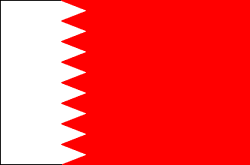 Twitter posts about anti-government protests have landed a human rights activist in Bahrain behind bars.
Twitter posts about anti-government protests have landed a human rights activist in Bahrain behind bars. Said Yousif al-Muhafda is accused of disseminating false information about clashes between security forces and protesters in the country's
capital, the state-run Bahrain News Agency reported Al-Muhafda, the head of documentation for the Bahrain Center of Human Rights, was arrested during a demonstration. Just before his arrest, the center said a series of posts went out on his
Twitter account, describing a shotgun injury, tear gas and security forces spraying pepper spray on female protesters faces as they mock them/laugh. Al-Muhafda has been using the account for months to document what he says are human rights
violations in Bahrain. A government prosecutor pointed to one Twitter post, which showed a picture of an injured leg. The image, resulted in protests and acts of sabotage that disrupted security on that same day, Bahrain's government news
agency claimed. Human rights activists have criticized the arrest, saying it is part of a growing crackdown on social media posts.
|
| |